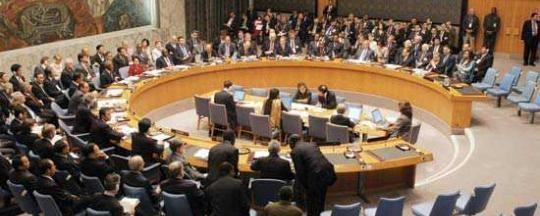The United States delegation to the United Nations has failed in a push last week to secure the imposition of an arms embargo on South Sudan’s warring parties, including the government.
White House officials had opposed calls for an arms embargo on South Sudan’s warring parties for more than two years but they changed their position last week and proposed to the UN Security Council an arms embargo.
Britain and other powers have long supported the measure but other P5 members of the Security Council are opposed or reluctant.
A week of meetings about South Sudan at the UN headquarters in New York ended with only a statement threatening “potential” sanctions that “may be appropriate to respond to the situation,” with no mention of an arms embargo.
In a press statement, the UN Security Council expressed “deep alarm over the escalation of ethnic violence in South Sudan reportedly carried out by the SPLA, the SPLA in Opposition, as well as militias, and unidentified armed groups.” But the members did not agree on concrete steps.
The statement was made after briefings to the international body by the Special Representative of the UN Secretary-General Ellen Løj, the UN Special Advisor on the Prevention of Genocide Adama Dieng, and the chair of the South Sudan sanctions committee on the situation in South Sudan.
The statement says, “The members of the Security Council strongly condemned all instances of attacks against civilians, ethnically targeted killings, hate speech, and incitements to violence.”
It also says that the South Sudanese government has continued to put up obstacles to the work of the UN Mission in South Sudan: “While recalling Resolution 2304 (2016), the members of the Security Council expressed concern that while the Government of South Sudan has made further commitments since the 4 September 2016 Joint Communique with the Security Council, that progress was insufficient and has yet to translate into concrete improvements on the ground.”
The council members “called on the Government of South Sudan to immediately uphold its commitments.”
“The members of the Security Council signaled their readiness to consider taking additional measures in order to prevent a further escalation of violence and conflict, including potential sanctions that may be appropriate to respond to the situation,” reads the statement.
Five permanent members of the UN Security Council hold veto power on any vote, including China and Russia, who historically have been more skeptical of measures such as sanctions arms embargoes. The US delegation at the UN headquarters likely would not have brought a vote on an arms embargo if they thought it could be vetoed.
During a September visit to South Sudan the US delegation claimed that the Security Council was unified in its policy toward the country but this week Russia’s deputy UN ambassador Petr Iliichev disagreed with the US saying that an arms embargo “would hardly be helpful in settling the conflict.”
The Russian diplomat also said that imposing a travel ban and asset freeze on South Sudanese leaders “would be the height of irresponsibility now.”
Related coverage:
Booth rules out trusteeship in South Sudan as ‘impractical’
USA and the coronation of Taban Deng




